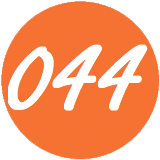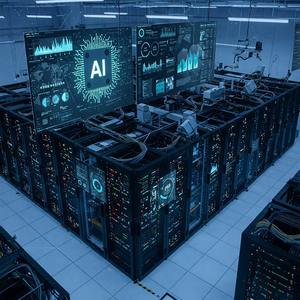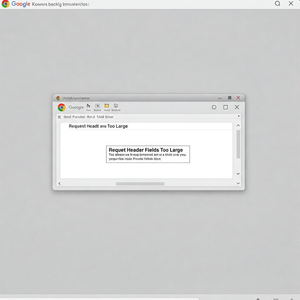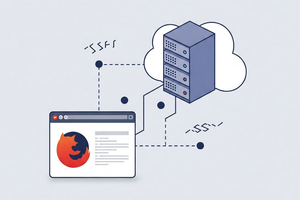
And the time came for social and free information
The article explores the influence of social media and technology in accessing information, emphasizing the dangers of a superficial education and knowledge acquired without discipline. It highlights how searching for quick answers on the internet, without adequate in-depth study, can compromise our ability to truly understand the topics covered. The author invites us to reflect on the importance of a constant commitment to study and research to preserve our mental and cultural evolution.
The Influence of Social Media and the Need for Mental Maturity in Information
In an era where digitalization permeates every aspect of our lives, social media has established itself as a powerful tool for sharing and disseminating information. Its speed and immediate accessibility have revolutionized the way we gather data and opinions, but this evolution also brings with it a series of challenges, especially regarding the quality and reliability of the information we receive. Although social media offers a democratic platform where every voice can be heard, it often becomes a breeding ground for the spread of unverified news, personal opinions and, sometimes, outright manipulation.
This continuous exposure to an incessant flow of content, often superficial or erroneous, raises questions about people's ability to discern between what is really useful and what is just noisy or misleading. Despite the apparent abundance of knowledge, the quality of what is shared on social media can be compromised by the absence of careful selection of sources and the speed with which information is produced and consumed. In this context, mental maturity becomes a fundamental requirement for those who wish to correctly navigate the vast sea of information available online.
In this case, being mentally mature means being aware that information is not just a question of access, but of understanding and contextualization. Each individual has the duty to develop a critical capacity that allows them to avoid being overwhelmed by partial or distorted narratives. Mental maturity implies a deep knowledge of the tools that are used, an understanding of the psychological dynamics that influence the dissemination of news and, above all, the ability to reflect before accepting any information as absolute truth.
Unfortunately, the search for quick answers and the haste to be informed leads many people to neglect depth of knowledge, preferring the comfort of easy and immediate information. This attitude often translates into a superficiality that does not allow for making real connections between information, nor for learning in a critical and constructive way. If we consider the example of doctors who consult vast archives of scientific research or experts who dedicate years of study to a single subject, we realize that training and in-depth study are essential elements for acquiring an adequate understanding of any field. The speed of social media is not compatible with this kind of reflection and in-depth study, yet many people blindly trust information found online without comparing it with other sources or without questioning its validity.
Another fundamental aspect is the concept of “discipline” in our approach to information. In the digital world, discipline is not limited to the acquisition of data, but extends to the ability to organize, select and analyze information in a systematic way. The fact that each of us has access to an ocean of knowledge doesn't mean that we can use it indiscriminately. Just as a scholar devotes years to the study of a discipline, so too should we, when dealing with complex subjects, make a conscious effort to really understand what we are trying to learn. The rush to “consume” content without the right commitment often leads to misunderstandings and the spread of misconceptions. Mental maturity, therefore, is a quality that requires us not to be satisfied with easy answers, but to engage in deep reflection that allows us to approach information in a rigorous way.
Finally, we cannot ignore how superficiality in dealing with information can lead to polarization and fragmentation of thought. When we let ourselves be influenced by social media without critical thinking, it is easy to fall into the trap of the “information bubble”, where only opinions similar to our own are heard, and conflicting ones are ignored or demonized. This creates divisions, reduces constructive debate and limits our ability to evolve intellectually. If we don't learn to distinguish what is truly useful, we risk living in a world where information is selected not for its quality, but for its compatibility with our preconceived ideas.
In conclusion, mental maturity in dealing with information on social media is not just a luxury, but a necessity to avoid being overwhelmed by the chaos and superficiality that characterize the digital age. To be truly useful, information must be filtered, analyzed and contextualized, and to do this, constant commitment, a critical attitude and the awareness that access alone is not enough to truly understand are essential. Only with a trained, open and disciplined mind can we hope to navigate the sea of digital information effectively and safely, without being fooled by illusions of easy knowledge.
Distortion of Sources: The SEO Question
In today's digital world, SEO (Search Engine Optimization) has become one of the most powerful and influential forces in online information management. Although SEO is an essential technique for improving the visibility of a website and optimizing content for search engines, it has also generated a worrying phenomenon concerning the quality of information available on the web: source distortion. The growing emphasis on SEO has transformed online publishing into an algorithm game, in which the most “optimized” content — and not necessarily the most truthful or useful — ends up prevailing in search results.
To better understand this distortion, it is useful to analyze how SEO works and how it influences the selection of information. Search engines, such as Google, use complex algorithms to determine which content should appear at the top of their results pages. These algorithms are based on several factors, including the use of keywords, the structure of the content, the quantity of incoming links (backlinks) and, above all, the ability of a site to satisfy certain “search intentions”. The problem arises when the focus shifts from the intrinsic value and quality of the information to technical optimization alone.
The Influence of SEO on Content: From Truth to Visibility
The primary objective of SEO is to make content easily accessible and visible to a wider audience, but the risk is that, in an attempt to satisfy the criteria of the algorithms, many articles and websites are written exclusively to be easily indexed and not to be truly informative. This approach leads to the creation of content that is, in fact, designed to respond to a specific set of keywords or frequently searched phrases, but which sometimes lack substance or precision.
A striking example of this distortion can be seen in the world of news and blogs. When a person searches for an answer to a question online, the first results often show articles written with the sole purpose of climbing the search engine rankings. These articles are not always written by experts or verified sources, but rather by those who have a good understanding of SEO mechanisms. It could be a blog that, despite having no authority on the subject, manages to outrank more competent sites because of its optimization.
It is not uncommon to find content that presents partial or misleading answers, packaged in language that perfectly meets SEO criteria, but which leaves huge gaps in the information. This situation is particularly alarming when the topic concerns scientific, medical or legal issues, where accuracy is crucial. Unfortunately, incorrect or inaccurate information spreads very quickly, feeding a culture of “apparent certainty” that confuses users. In this case, SEO acts as an accelerator for unreliable information, creating a vicious circle in which distorted or incomplete content is amplified.
The Danger of “Market Saturation”: Copied and Translated Content
Another problematic aspect of SEO is the proliferation of articles that are simply copied, translated or repurposed without a real understanding of the topic. The possibility of automatically translating content from different languages, together with the lack of quality control on the material produced, has led to the creation of thousands of articles that, although they appear to be original, are in reality just a mixture of badly translated or automatically generated content.
This process of “market saturation” has two important consequences: on the one hand, the ability to find really in-depth and well-written content decreases, while on the other hand, users find themselves consulting material that often does not bring any added value. The lack of care in the writing process and in checking sources creates a distortion in the information that can easily be perceived as authoritative, even though it lacks the necessary rigor.
SEO-optimized content platforms can thus fuel the creation of low-quality articles that, despite having all the characteristics required by search engines, do not offer a true understanding of the topics covered. If these practices continue to be rewarded by search algorithms, the overall quality of online information could suffer further deterioration.
Distortion of Sources and Loss of Authority
The phenomenon of SEO also has a negative impact on trust in authoritative sources. When websites that are not experts on a subject manage to obtain greater visibility thanks to their SEO skills, the real authorities risk being overshadowed. The public, often unaware, could end up attributing the same value to a low-quality site, perhaps well-positioned in search results, and to an academic or institutional site that has not invested as much in search engine optimization.
This creates a paradox in which the most accessible, but least reliable content is the one that gets the most visibility, while qualified content risks being relegated to the bottom of the rankings. The absence of critical evaluation by users, together with the lack of attention to true sources of knowledge, risks undermining the value of entire sectors of information.
SEO and the Loss of Authenticity: An Ethical Dilemma
However, the distortion caused by SEO doesn't only concern the quality of the content, but also affects the sustainability of online information. SEO has led many companies and content creators to focus their efforts on producing articles that can generate maximum traffic, often to the detriment of authenticity and intellectual honesty. The pressure to adapt to algorithms is such that many prefer to produce viral content that is attractive to the public and easily indexable, but that does not respond to the real need for knowledge and in-depth analysis.
The ethical dilemma lies precisely in the balance between the need to satisfy SEO criteria in order to stand out and the commitment to providing truthful and well-documented content. If SEO logic overlaps and takes precedence over the quality of information, the responsibility of content creators is weakened, prioritizing “visibility” over “veracity”. This, in the long run, can damage the user's trust in information sources.
The Future of Online Information
Ultimately, the issue of SEO is one of the central aspects in the debate on the quality of digital information. While it is fundamental to recognize the role that SEO plays in facilitating access to content, it is equally important not to lose sight of the value of substance and reliability of information. The real challenge is to find a balance between search engine optimization and the responsibility of providing content that is not only visible, but also useful and truthful. Without a change in priorities, the risk is that the web will become a sea of superficial content, where the distortion of sources prevails over quality and authoritativeness, with potentially devastating consequences for society and for our ability to form informed opinions.
Case Study: Online Errors and Misinformation
Let's take for example the case that recently struck me, on a streaming platform initially designed for video gamers. I happened to recognize a word derived from Greek, adapted over time to the Italian language. The situation was peculiar because, while the “streamer” was reading this word, he seemed not to know its meaning, and I thought to explain it to him. A few minutes later, another viewer provided an interpretation that contrasted with mine. Out of curiosity, I Googled this explanation. And guess what? The article that the other person had found contained a completely incorrect definition.
The digital age has undoubtedly revolutionized the way we get information, learn and interact with the world. However, with the spread of information via the web, an equally dangerous phenomenon has emerged: misinformation. Incorrect, incomplete or manipulated information spreads easily through the internet, often without any intention to cause harm, but with an impact that can be devastating. The speed with which news spreads on social media, blogs, forums and websites has far exceeded our ability to verify it and discern the right from the wrong.
A fundamental aspect of online misinformation is that people are often unaware that they are exposed to inaccurate content. The lack of a widespread digital culture that helps users recognize reliable sources and verified information means that articles, posts and videos with erroneous content are taken as absolute truth. This happens especially when the content is exciting, scandalous or confirms a pre-existing belief. Unfortunately, the psychological aspect plays a fundamental role in this process: people tend to more easily accept what is in line with their own beliefs.
The Ease of Disinformation
A classic example of online error concerns information related to health and medicine. In the most extreme cases, articles advertising miracle diets or non-scientific treatments can go viral and influence a disproportionate number of people. For example, many websites that talk about alternative treatments for serious or rare diseases present testimonials or stories of “incredible healings”, but fail to mention the side effects or, even worse, the ineffectiveness of certain treatments. This type of content, unfortunately, can be very seductive for those looking for a quick fix to a health problem, but it can have devastating consequences if people decide to follow it without consulting a doctor.
Another example of online error is the spread of fake news about politics or society. During election periods or times of crisis, the web becomes a real breeding ground for the spread of made-up news. Fake news is created to arouse strong emotions, to manipulate public opinion or to discredit political opponents. This news is often packaged with catchy headlines and graphics that give the illusion of coming from authoritative sources, but are distorted for propaganda purposes. Although many of these stories are debunked, the speed at which they spread makes it difficult to stop their impact.
The Algorithm Effect: The Problem of Relevant Disinformation
One element that contributes enormously to the spread of errors and misinformation online is the customization of algorithms on social media and search engines. These algorithms, which are designed to suggest content based on the interests and online behavior of users, tend to create a sort of “information bubble”. In other words, the more a person interacts with a certain type of content (whether it is politically oriented, sensationalist or simply misleading), the more the algorithm suggests similar content, without worrying about its veracity. The result is that the user finds themselves in a spiral of information that confirms their beliefs, even when these are incorrect, without ever coming into contact with alternative points of view or contradictory information.
An example of this phenomenon occurred during the 2016 US presidential election, where many users only had access to filtered and, in many cases, falsified content, reinforcing pre-existing opinions without ever questioning them. The constant repetition of certain information, even if erroneous, has had a significant impact, influencing the perception of real events and facts. The polarization of public opinion has thus become another side effect of the misinformation fueled by social media.
Lack of Control and Accountability
One of the main causes of online error is the lack of a system of control and accountability for those who publish content. Unlike traditional media, where journalists and editors are required to respect certain editorial standards and verify sources, the web allows anyone to publish whatever they want without any verification. Furthermore, social media platforms are often not sufficiently equipped to combat the spread of misleading or false content. Although some fact-checking initiatives have been introduced by companies such as Facebook and Google, content control remains inadequate compared to the amount of data that is generated every second.
Not only is the quality of the content often poor, but in many cases it is the intention of the content creator that lacks seriousness and professionalism. Many websites, in fact, are created with the sole purpose of generating traffic, using catchy titles and popular topics to attract clicks. This phenomenon is called clickbaiting and is a further manifestation of how information is distorted to gain visibility and money, without any regard for the truthfulness of what is written.
The Consequences of Misinformation: A Long-Term Effect
Misinformation online, therefore, is not just a problem of individual errors, but has much more serious and lasting consequences. When people are constantly bombarded with incorrect or manipulated content, it is difficult to maintain critical and conscious thinking. Furthermore, accepting this misinformation not only weakens the ability to discern the truth, but also fuels mistrust of official institutions and the media.
Another danger is that misinformation becomes self-perpetuating: once incorrect information is disseminated, it can be picked up, repeated and adapted by other sources, creating a reinforcing cycle. In these cases, even if subsequently disproved, the false news will continue to circulate, taking root in the collective consciousness and being difficult to eliminate.
The need for a responsible approach
To effectively combat online error and misinformation, it is essential to promote greater digital literacy. Users must be aware of the risks associated with searching for information online and learn to recognize reliable sources, developing critical thinking skills. The platforms themselves must adopt stricter measures and take responsibility to prevent harmful content from being distributed indiscriminately.
In conclusion, online misinformation is not a temporary phenomenon, but a structural problem that requires action from everyone: users, platforms and governments. Only through greater awareness and collective commitment will it be possible to reduce the errors and falsehoods that fuel disinformation and protect the integrity of digital information.
Mental Maturity: An Increasingly Rare Value
This episode made me reflect on how often we rely on incorrect information without even realizing it. The ease with which we can find data online, without verifying the source or its accuracy, exposes us to significant risks. It is no longer necessary to be an expert to “teach” something: just copy and paste an article and, if the site is well positioned on search engines, it quickly becomes the “truth” for millions of users. In the past, on the other hand, the publication of a book or a written work was a long and rigorous process, involving years of study and research. Discipline, which today we often forget, was the foundation on which a reputation was built.
We live in an age that rewards immediacy, responsiveness, appearance and superficiality. Mental maturity, that distinctive trait that allows us to make considered decisions, reflect on our behavior and understand its repercussions, seems increasingly rare in a society where speed of communication and the urgency of instant gratification are the order of the day. But what does “mental maturity” really mean and why does it seem to be an increasingly difficult value to find?
The Sense of Mental Maturity Today
Mental maturity is not just a question of age or experience. It is a quality that implies the ability to see beyond the immediate, to manage emotions and internal conflicts in a balanced way, and to not be overwhelmed by impulses or prejudices. A mentally mature person is able to reflect on their actions and take responsibility for their choices, avoiding blaming others or circumstances. They have a deep sense of self, an emotional balance that helps them face life's difficulties with serenity, but also with an accurate awareness of their limitations.
Unfortunately, in a society that exalts rapid action, instantaneous communication and immediate problem solving, mental maturity seems to be relegated to second place. Social pressure pushes people to look for quick answers, to react rapidly to external stimuli, without taking the time to reflect. The result of this process is that more and more people are facing life's challenges impulsively, without the ability to fully analyze the consequences of their decisions.
Speed as an Enemy of Maturity
One of the main factors that undermine mental maturity is the speed with which we live and operate today. The acceleration of daily rhythms, accentuated by means of communication such as social media, pushes people to make choices without reflecting, to respond without thinking, to make statements without verifying them. In other words, speed reduces the time dedicated to critical reflection. We no longer stop to think before speaking, we react on impulse, often letting ourselves be carried away by the emotions of the moment.
This speed prevents us from dealing with the nuances of situations and problems. The inability to think long-term, to foresee the consequences of a decision today, can lead to a continuous race towards quick and easy solutions, which however are incapable of truly facing problems in a deep and decisive way.
The Society of the Immediate and Superficiality
Another aspect of modern society that contrasts with mental maturity is the tendency to seek immediate gratification. In a world dominated by the culture of efficiency, speed and rapid success, the concept of waiting, of long-term dedication, seems to have disappeared. Instant gratification has become the norm: liking a post, sharing news without verifying its truthfulness, the impulse to buy something on the fly via an app. Mental maturity, on the other hand, is the result of a slow process, of growth that occurs through lived experiences, inner reflections and trial and error that take time to be fully understood.
Furthermore, in a context like that of social media, where image and appearance are put center stage, superficiality is inevitable. We expose ourselves, we act and react more and more through digital masks, losing the ability to interact in an authentic and profound way with others. Interpersonal relationships often become fragile and artificial, based on quick and superficial messages, and this also affects our ability to think critically, to make considered evaluations of what we read, see and hear.
Mental Maturity and Self-Awareness
Mental maturity is closely linked to another fundamental value: self-awareness. A mentally mature person is able to examine themselves, understand their own strengths and weaknesses, recognize their emotions and manage them without being overwhelmed. Self-awareness allows us to make conscious choices, not to run away from problems, but to face them in a rational and responsible way.
We live in an age that too often encourages us to escape from difficulties, to avoid confronting our limitations. But only through introspection and awareness of our strengths and weaknesses can we truly grow as individuals and as a society. Mental maturity implies precisely this ability to be honest with ourselves, to recognize that we are not perfect, but that we can improve every day with commitment and reflection.
The Role of Culture and Education
Mental maturity is not an innate gift, but a quality that can be cultivated over time, through experience, study and comparison. Culture plays a fundamental role in this process. Reading books, listening to different opinions, talking to people with different experiences and points of view are all tools that help us develop a more open and flexible mind. Continuous education, in any field, not only makes us more competent, but also wiser, better able to handle the challenges that life presents us with.
The problem, however, is that modern society seems to place less and less value on in-depth learning, preferring the rapid consumption of superficial content. The tendency is to learn everything quickly, without dedicating oneself to a deep understanding of a subject, without taking the time to reflect on it. This mentality limits the development of authentic and lasting mental maturity.
In summary
Mental maturity is without doubt one of the rarest and most difficult values to achieve today. In a fast-paced world, where everything is available immediately and where appearance seems to prevail over essence, developing a balanced, aware and reflective mind is a constant challenge. However, it is also a goal worth pursuing, because only through mental maturity can we hope to live an authentic life, make wise choices and contribute to a society that knows how to face its difficulties in a serious and responsible way. Inner growth requires time, commitment and above all the will to reflect on one's actions and on the world around us. In this context, mental maturity is not only a personal goal, but a fundamental resource for collective well-being.
The Return to Discipline: A Necessary Contribution
Today, anyone can publish content, regardless of their competence or experience. On the one hand, this has democratized access to information, but on the other hand, it has created real confusion between what is true and what is an unfounded opinion. This phenomenon doesn't only concern general content or opinions, but also areas of study and sciences, where expertise is fundamental. If I were to fall ill, I would never rely on a blogger for a diagnosis. Yet, more and more people are searching for medical answers on the internet, hoping to solve their problems without any real knowledge or awareness of the field.
Discipline, understood as a value that guides our daily actions and decisions, seems to have become an increasingly distant concept in contemporary society. In a world that celebrates immediacy and overcoming difficulties with quick solutions, the need to return to discipline is becoming increasingly urgent. Discipline is not just a rule imposed from the outside, but a quality that comes from the ability to self-regulate, to pursue a goal with constancy, patience and commitment. In a context where technology and information overwhelm us, discipline becomes one of the most effective tools for finding a balance between the virtual world and our inner reality.
The Disappearance of Discipline in Modern Society
We live in an age where the speed of information has drastically reduced our attention span. The temptation to be constantly connected and to seek immediate gratification is strong, fueled by social media, advertising and the fast-paced consumer culture. The ability to focus on an activity for an extended period of time, to commit to improving a skill or to pursue a goal with tenacity, seems to be tested at every turn.
Discipline, once seen as the foundation of success and personal growth, has lost its centrality in many areas. People are increasingly inclined to look for easy solutions, shortcuts, quick answers. The search for instant gratification has undermined the ability to persevere in the face of difficulties, to invest time and energy in something that requires effort and sacrifice. The dynamics of modern life seem to push us to do everything quickly, without a well-defined plan or path.
The Meaning of Discipline Today
The concept of discipline goes beyond simply respecting the rules. True discipline is a constant commitment to personal improvement, to achieving long-term objectives, to the ability to make informed choices even when this involves sacrifice. It is an inner strength that allows us to stay on course even when the temptation to deviate is strong.
In many cases, discipline is associated with study or work situations, but in reality it should permeate every aspect of our life. Discipline is not only the ability to complete a task, but also the ability to face emotional difficulties, to manage our reactions and to remain faithful to our values even when external circumstances seem to push us in the opposite direction.
The Importance of Discipline for Personal Development
Restoring the value of discipline in daily life can make the difference between a life lived with awareness and a life spent without a clear direction. Discipline is not only useful for achieving success in the professional sphere, but it is essential for our psychological and emotional well-being. A disciplined person is able to resist the temptation to give in to harmful behavior, to control their impulses and to make choices that are in line with their principles. Discipline, therefore, is also a self-protection mechanism, which allows us to avoid the traps of superficiality and excess.
In the context of the modern world, characterized by uncontrollable flows of information and constant distractions, discipline helps us maintain a clear focus. In an era in which time seems to slip through our fingers, discipline allows us to organize ourselves better, to respect deadlines, to concentrate on what is truly important, avoiding being overwhelmed by external confusion. The ability to stop, to reflect before acting, to establish priorities, becomes an invaluable resource.
Discipline and Innovation: A Paradox At First
At first glance, it might seem that discipline and innovation are in conflict. In fact, innovation is often associated with rapid change, non-linear processes, and experimentation that requires flexibility and an approach that is not rigidly defined. However, if we look more closely, we realize that innovation requires discipline as well. The evolution of ideas, the putting into practice of creative intuitions, the continuous improvement of a project require constant commitment and the ability to stay focused on long-term objectives.
In other words, discipline is not an obstacle to innovation, but rather a prerequisite. Without a solid foundation of discipline, any attempt at innovation risks remaining a fleeting and incomplete idea. It is discipline that allows us to follow our path despite the difficulties, to perfect our ideas and to carry them forward over time, allowing them to transform into something concrete and lasting.
Education in Discipline
Restoring the value of discipline requires deep reflection, but also a change in our education and training. School, family, the workplace: in all these contexts it is possible to cultivate discipline, but also to risk losing this quality if methods that favor its growth are not put into practice. A proper education in discipline must teach not only to follow rules, but to understand the importance of constancy, planning, respect for oneself and for others.
Discipline is learned through example, but also through recognizing one's own mistakes and the awareness that every small step towards a greater goal is important. It is not just a question of rigidly applying rules, but of developing a mentality that allows us to face life with patience, perseverance and long-term confidence. It is a process that involves continuous self-evaluation and growth that is never completely finished.
In summary
The return to discipline is not only an individual choice, but a collective necessity. It is through discipline that we can regain the ability to think deeply, to act with awareness and to make decisions that contribute to improving not only our lives, but also that of our community. In an age that seems to depend more and more on emotions and impulsive reactions, discipline is like a lighthouse that guides us towards more balanced, wiser and more lasting choices. Without it, we risk getting lost in the frenzy of a constantly changing world, never finding our way.
The False Abandonment of Deep Knowledge
The crucial point is that education and research are two processes that require time and dedication. If we stop to read an article on Google without a real commitment to understanding the context and the discipline, we will never really master the subject. The same goes for any area of life: from medicine to photography, from science to economics. A quick online search is not enough to become an expert in a field. Without adequate preparation, you risk falling into the trap of superficial and inaccurate information.
In today's world, where we are bombarded by a constant flow of information, the desire to know things in depth often seems to be set aside, replaced by an approximation that has become the norm. This phenomenon doesn't only affect the field of culture or formal education, but permeates every aspect of daily life. The idea that superficial or partial knowledge is enough to “satisfy” our need to know is increasingly widespread. What appears to be an abandonment of deep knowledge is actually an illusion that prevents us from truly appreciating and understanding things.
We live in a reality where the concept of “knowledge” has been distorted. Instant access to an enormous quantity of data and the possibility of quickly answering complex questions through a search engine has created a sort of conviction that anything can be learned in a fast, simple and superficial way. The speed with which we can get answers has radically changed our approach to knowledge. Once, knowing something meant dedicating time, patience and commitment to a subject; today, knowing something often means getting an immediate answer, perhaps from a quick analysis of an online resource.
This search for quick answers translates into a “false abandonment” of deep knowledge. It is not a true rejection of knowledge, but a distortion of the way we perceive it. In many cases, the illusion of knowledge, which comes from possessing fragmented information, is enough to make us believe that we have reached a complete understanding. What we lose in this process is the value of in-depth study. Once upon a time there was the pleasure of digging deep into a subject, reflecting on its implications and exploring the nuances that make a question really interesting. Today we tend to focus on headlines, short answers, and opinions already formed by others.
The Risk of Superficiality
This approach risks creating a false sense of competence. We are convinced we know something simply because we found an answer online, but that answer is often not accompanied by a critical analysis or a broader context. Superficiality is the direct consequence of this search for speed, and unfortunately it doesn't allow us to truly master a subject. True knowledge requires time, study, and a mind that is ready to question itself.
In today's context, this phenomenon does not only concern the scientific or technical field. Even in the humanities, where in-depth study and critical reflection have always been central, the tendency to take what is written or said at face value without adequate critical examination is worrying. A striking example of this superficiality can be found in social media, where opinions are often based on quick and unfounded ideas. People stop at what they read, without seeking further confirmation, insights, or alternatives. It is a vicious circle that leads to the continuous circulation of inaccurate information, which in the long run can distort our understanding of the world.
The Effect of Digital Culture
The dominance of digital culture has further amplified this phenomenon. The internet and social media are powerful tools, but their structure for disseminating information favors the speed rather than the quality of knowledge. The result is that knowledge is reduced to a collection of data, posts, videos, infographics and short articles which, although useful in some contexts, do not offer the breadth necessary for true learning. Every piece of data, every statement, risks being truncated by the brevity of the format and the haste with which we consume information.
Because of the ease with which we can access information, we are less inclined to reflect deeply on it. The online interaction dimension, made up of quick responses and immediate comments, has transformed the way we communicate and, consequently, the way we learn. Not only are responses faster, but our attention is also more fragmented. Rather than concentrating on a single topic for hours or days, as was the case in the past, we tend to jump from one subject to another, unable to concentrate on a concept for a sufficient amount of time. Our ability to “waste time” on a subject, to see its nuances, is severely compromised by the culture of speed.
The Need to Rediscover a Reflective and In-depth Approach
To avoid falling into the trap of falsely abandoning in-depth knowledge, it is necessary to recover another type of approach to knowledge. We need to start seeing knowledge as a continuous process, that doesn't end with a simple answer found online, but that requires constant commitment, a curiosity that isn't limited to what is immediately available. It also implies the ability to go beyond the surface, to understand the historical roots, the underlying theories, the evolution of a topic, even when quick answers seem satisfactory.
Information, therefore, must be treated as a starting point and not as the final destination. We are invited to take a step back from immediacy and take the time necessary to examine what we are offered in depth. Only in this way can we escape this cycle of superficiality and return to authentic knowledge, which allows us to build a deep and structured understanding of the world around us.
True knowledge is never immediate. It is something that grows over time, that is built up slowly, often through comparison with different sources, by questioning oneself, and above all by having the courage to never stop at the first answer that is proposed to us. Recovering the taste for depth, for research and for patience in understanding is what will give us back true knowledge.
The Importance of Deepening One's Knowledge
In this regard, we can take an example from the world of photography and computer science, fields that I know quite well. It often happens that friends or acquaintances ask me for advice on photographic techniques or computer tools. Although I can offer valid answers, it's important to recognize that it's not enough to listen to the opinions of several people to gain a deep understanding of a subject. If you don't study the subject in depth, you risk always remaining at a superficial level.
In an age of instant access to information, the value of truly deepening one's knowledge seems to have become increasingly relative. While the digital age has undoubtedly enriched our ability to acquire information, it has also made it easier to be tempted to stop at the surface of things, taking for granted that knowing “something” is enough to be considered an expert. However, in-depth study remains a fundamental component for those who wish not only to be informed, but also to fully understand what they are learning, thus broadening their perspectives.
Knowledge that is not accompanied by deep reflection risks remaining sterile. Very often, in fact, we tend to gather information mechanically, without making the effort to relate it to other ideas or experiences. This superficial approach can be dangerous, because it leads to a limited and fragmented understanding of the topics that interest us. Deepening one's knowledge means going one step further, exploring aspects that are not immediately visible and trying to see the hidden connections between different concepts.
A clear example of this phenomenon can be observed in the field of science, where even a small detail that is not fully understood can undermine the validity of a broader concept. The same principle applies to any other discipline: from philosophy to politics, from psychology to history. A true understanding of a subject can never be acquired quickly or in a simplistic way. Rather, it requires patience, curiosity and the will to dig deeper.
The real value of deepening one's knowledge lies in the opportunity to see things from different angles. When we limit ourselves to accumulating information without questioning it, we remain trapped in a one-sided vision. Just because information is easy to find doesn't mean that it's all the same or that it's all correct. The quality of what we learn depends on our ability to choose reliable sources, to critically analyze what we are told and to compare it with what we already know.
In the working world, deepening one's knowledge is a fundamental resource for those who aspire to stand out. It is not enough to know how to perform a task: one must fully understand its context, implications and possible developments. Those who stop at a superficial understanding of a discipline may find it difficult to solve complex problems, precisely because they have not developed the ability to integrate the details into a coherent picture.
Furthermore, today's society is characterized by an increasing flow of conflicting information, which comes from different and sometimes unreliable sources. In this context, in-depth study becomes a crucial skill: it is not only necessary to acquire knowledge, but it is equally important to be able to distinguish truth from distortion and substance from appearance. Superficial knowledge can easily become fertile ground for misinformation, while well-grounded knowledge, which comes from constant commitment, has the power to make the individual more aware and prepared to make informed choices.
Finally, deepening one's knowledge allows one to develop a critical mind. It is not enough to learn a concept to consider oneself “informed”. True intellectual growth happens when we question what we know, explore new ideas and try to integrate them into a more complex system of thought. This approach allows us to mature as individuals, to evolve continuously, instead of being satisfied with static knowledge.
In this context, the importance of deepening our knowledge is not only about becoming more competent in a specific field. It is a process that enriches our life, broadening our vision of the world and improving our ability to interact with others. When we decide to invest in our education in a profound way, we are not only acquiring new information, but we are also developing the skills necessary to navigate the world with greater awareness.
Technology as a Tool and Not as a Master
Our culture today tends to look for quick, easy answers, ready to be consumed in an instant. But this approach is not enough to gain a true understanding. It is essential that we stop and reflect on the value of discipline, which implies constant commitment, deep study and authentic understanding. This doesn't mean we should give up on technology or social media, but we should use them as tools, not let them dominate us.
We live in an era where technology has permeated every aspect of our daily lives. There is no sector, from medicine to education, from communication to finance, that has not been profoundly and often irreversibly influenced by technological progress. While technology has brought countless benefits and made human activities much easier, it has also raised questions about our relationship with it and its role in society.
Technology began as a tool, a tool designed by human beings to solve practical problems and expand our capabilities. The first tools, for example, were nothing more than physical extensions of our hands and our mental capacities. The same is true for modern inventions such as computers, smartphones and artificial intelligence, which are tools created to improve our efficiency, speed up processes and help us carry out activities that would otherwise be impossible.
However, our growing dependence on technology has given rise to an interesting and, in some cases, worrying phenomenon: the tendency to consider technology no longer as a tool, but as a guide or even a dominant force. The incredible speed with which technology has invaded our lives has had a profound impact on our habits and behavior, leading some to perceive it as an almost autonomous entity, beyond our control. So, instead of technology remaining a means at our disposal, it has become a force that often conditions our choices, our productivity, and in some cases even our thinking.
An emblematic example of this role reversal is the growing ability of technology to influence our daily decisions. Social media, for example, are no longer simply platforms on which to share thoughts and content, but spaces that use sophisticated algorithms to manipulate the content we see, suggest what interests us and, consequently, influence our opinions and actions. In many cases, we are pushed to react, click, comment, without stopping to reflect on the real motivations behind the information we are presented with. In this dynamic, technology seems to have the upper hand over the individual, who loses control of their time and decisions.
Another example is automation. Although automation offers countless advantages, such as reducing human error and increasing productivity, it also carries risks related to the loss of autonomy. In some sectors, workers increasingly find themselves interacting with machines and algorithms that make decisions for them, with increasingly marginal human supervision. This doesn't mean that technology should be completely rejected, but rather that we need to rethink our role within an advanced technological system, preventing the machine from taking the place of our creativity, our problem solving abilities and our human judgment.
Furthermore, we cannot ignore the way in which technology can influence our social relationships. Social networks, initially designed to connect people, have become places where our identity is often filtered and artificially constructed. The pressure to be constantly connected and updated leads many people to live in a state of continuous competition with others, where personal value is measured by the number of likes, comments or followers, rather than on deeper and more authentic aspects of human relationships. This leads to a growing feeling of alienation and loss of real connection with others, as technology increasingly becomes the means by which we mediate and interact, rather than a simple channel.
The real challenge, therefore, lies in finding a balance between the advantages that technology offers us and the risks it poses to our autonomy and well-being. Technology should never take the place of human beings, neither in production processes nor in our daily experiences. On the contrary, it should be seen as a support that allows us to accomplish what is human in a more efficient and enriching way.
In short, technology shouldn't be a master that rules over us, but a tool that enhances our ability to think, act and relate to others. When we stop using it consciously, we risk becoming slaves to a system that we created to make our lives easier. The task of each of us is, therefore, to never lose the awareness that technology must remain a means at our service, and not the other way around.
The Free Mind: Respect for Knowledge
As a society, we cannot afford to become slaves to technology. Far from denying the benefits that technology and social media can offer, we must be aware of the dangers that come from uncontrolled use and the search for superficial information. We must never forget that, first and foremost, true knowledge requires time, passion and commitment.
The integration of technology into our lives has reached a point where its presence is now unavoidable. Whereas in the past, technological tools were seen as optional accessories, today they represent the lifeblood that fuels a large part of our daily activities. However, while technology has the potential to simplify and improve every aspect of our existence, there is a fine line between being the master of technological tools and letting them blindly guide us.
Technology began as a tool created by man to face practical challenges and expand his abilities. From the first stone tools to the most complex artificial intelligence algorithms, the primary objective of every innovation has been to assist man in improving his quality of life, solving problems and accessing knowledge that was previously inaccessible. Every technology is, therefore, the result of a precise intention: to serve man and not to dominate him.
However, as technological progress has taken hold, we have become increasingly dependent on it, to the point of risking losing sight of its original purpose. The adoption of digital technologies, in particular, has led to the creation of systems that not only simplify daily activities, but often determine their course. For example, social media platforms, although designed to connect people, have taken on a much more invasive role, creating dynamics that influence personal choices, collective behavior and even the orientation of opinions.
In some cases, technology becomes the lens through which we observe the world, and not just a tool at our service. This phenomenon can be observed in the excessive use of smartphones and search engine algorithms, which offer us “tailored” answers, thus shaping our view of the world based on what we see on a screen. What was supposed to be a help in the search for information sometimes turns into a prison of partial or distorted information, which distances us from the possibility of critical reflection.
Another aspect that deserves attention concerns the increasing automation in many sectors. In principle, automation was seen as an opportunity to lighten workloads, improve efficiency and reduce human error. However, as technologies evolve, tasks that were once performed by experienced people are increasingly delegated to automated systems, which operate without a deep understanding of the context in which they operate. In some sectors, such as industrial production, automation has led to a progressive disconnection between man and work, creating not only difficulties in the management of processes, but also an impoverishment of human creativity and ingenuity. It is no longer man who commands the machines, but the machines that dictate the progress of the work.
In this regard, the concept of “mastery” goes beyond the idea of physically owning a technological tool. True mastery lies in knowing how to use it consciously, without it becoming the center of our lives. Yet many people today find themselves living in a sort of “endless cycle” in which technology becomes the driving force behind their decisions and actions. It is not a question of demonizing technology in itself, but of understanding that its potential, if used correctly, can lead to significant progress without reducing human beings to a passive role.
The inability to maintain a balanced relationship with technology has led to a dangerous loss of autonomy. Constant interconnection and the frenzy to keep up with changes, whether they are news, social events or app updates, push us further and further away from our ability to live the present fully. In fact, it becomes difficult to concentrate on deep and meaningful activities when every minute is interrupted by a distracting notification.
Furthermore, the increasing personalization of digital experiences creates a sort of “information bubble” that makes us see the world through a distorted lens, filtered by algorithms that provide us only with what falls within our preferences and beliefs. Not only is the variety of information reduced, but we also become accustomed to a certain type of content which, unfortunately, does not stimulate curiosity or critical understanding. In such a context, technology is no longer just a tool that enriches our experience, but becomes the filter that limits our ability to explore new ideas, to question ourselves and to interact deeply with others.
The real challenge lies in maintaining the awareness that technology must remain a means and not an end. When machines begin to take the place of our decisions, our thoughts and our ability to learn critically, the very value of humanity is lost. We, as human beings, should be at the helm, able to use technology in a thoughtful way to enrich our lives, without it taking control of our actions and emotions.
A Reflection
In conclusion, the world around us is increasingly complex, and there is a substantial difference between knowing and understanding. If we really want to evolve as individuals and as a society, we must dedicate time to acquiring knowledge in a serious and constant way. Only in this way will we be able to use technology to enrich our lives without becoming dependent on it, without losing the ability to reason, reflect and act with awareness.






















